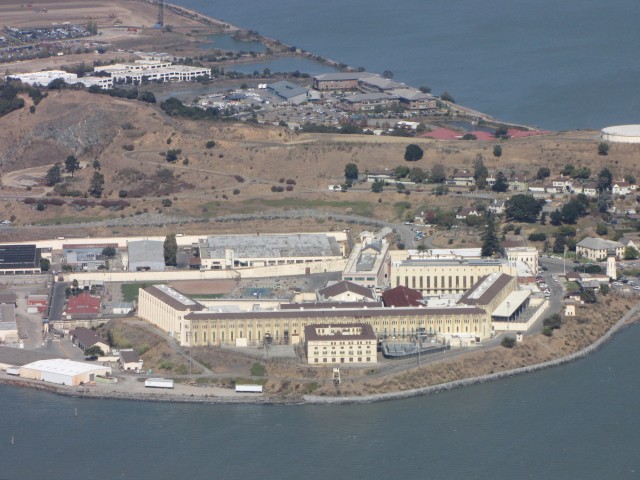Update, 4:35 p.m. Sunday, Aug. 30: San Quentin prison officials say the number of confirmed cases of Legionnaires' disease at the Marin County facility has risen from one to six, with another 51 inmates under observation because they've shown signs of respiratory illness.
The outbreak has led to the suspension of most out-of-cell activity for prison's 3,700 inmates.
A statement from the prison on Sunday also reports that use of San Quentin's water system has been partially restored after being shut down Friday.
Infection with the Legionella bacteria, which can cause a potentially fatal form of pneumonia, happens through breathing mist carrying the pathogen. According to the National Institutes of Health's MedlinePlus, common sources of the mist are hot tubs, showers or air-conditioning units in large buildings. The bacteria don't spread from person to person.
A Sunday afternoon statement from San Quentin gave further details of the situation at the facility:
After consulting with local, state and national public-health experts familiar with the transmission of Legionnaires’, the prison resumed the use of plumbed toilets inside the facility’s housing units. Secondary water sources such as bottled water and water tanks will continue to be used for consumption until it is deemed safe to resume normal water use.
SQ officials have been in communication with the Men’s Advisory Council, a representative group of inmates who advise and communicate with the Warden and other staff on matters of interest and concern to the inmate general population.
Inmates are currently being served boxed meals to avoid exposure to steam and mist during cooking operations.
Portable shower units arrived at the prison on Saturday. SQ administrators and custody staff are coordinating to provide all inmates with showers and hope to resume out-of-cell activity as soon as possible.
SQ is a reception center for new inmates to the California prison system. Intake has been temporarily halted as the investigation continues.
All inmate visiting and volunteer programs have also been halted as the investigation is ongoing
Original post, Friday, Aug. 28: Officials at San Quentin Prison have shut down the facility's water system in response to a possible outbreak of Legionnaires' disease.

